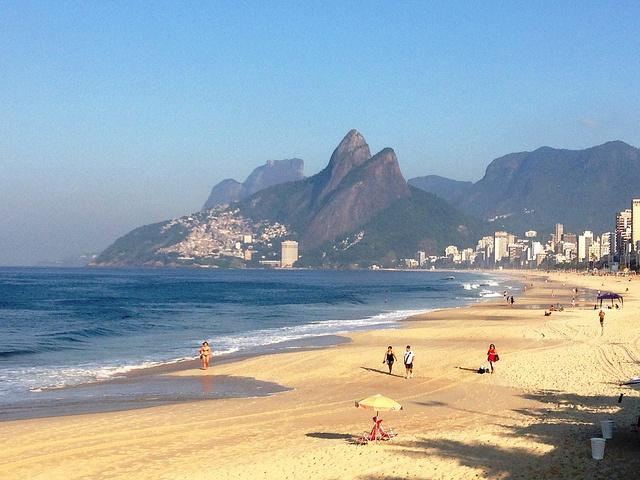
By Dr. Dogan Gursoy
The World Cup and Olympic Games are time-honored traditions. Every few years, people unite to watch these enormous sporting events and support their country. Bidding for the honor of hosting these mega events, countries hope to attract tourists from around the world, create new jobs and gain international recognition from the media coverage surrounding these events. However, this honor comes with the responsibility to create effective spaces for the thousands of athletes and tourists alike. Most recently, Brazil hosted the World Cup, and is quickly preparing for the Summer Olympics in Rio this August.
Although these mega-events bring benefits and costs to the host country, detrimental impacts can offset the perks. Price inflation, tax increases, mismanagement of funds, traffic congestion, increased crime and cultural conflicts are just a few potential consequences. These, among other issues, can lead to opposition from local residents. Additionally, these events may have negative environmental impacts, including increased pollution and the destruction or deterioration of natural, cultural or historical resources. Countries can lessen these effects by implementing a more democratic process to build trust among stakeholders and gain support from residents.
Brazil has been a prime example of how a mega event can go wrong. In 2014, Brazil spent huge sums of money (~ $11.3 billion) on World Cup-related infrastructure improvements. Many Brazilians felt that the large funds spent benefited elites while further marginalizing disadvantaged groups. Fed up with poor public services and corrupt politicians, massive protests broke out over the large sums spent building stadiums and event infrastructure. Protesters argued that the money would have been better spent on hospitals, schools and public transportation.
A democratic process
Unfortunately, due to the intense competition to host these events, leaders and organizers often ignore the negative impacts and glorify the expected benefits. While mega events require considerable investment of human, financial and physical resources from host communities, they have traditionally involved a political planning approach. This approach normally allows little to no input from local residents. Implementing a more democratic planning process can have significant impact on residents’ support for the event.
Implementation of more democratic planning approaches, for example Toronto’s bid for the 1996 Summer Olympic Games, suggests community involvement and support can transform a mega-event into an urban festival that provides a significantly more positive experience for hosts and guests.
Building trust and support
While successfully hosting a mega-event requires all stakeholders to trust the government and the organizing committee, lack of trust within the host community can turn the planning process into a highly charged political and social exercise. Community opposition can lead to demonstrations, delays and legal action, as we have seen in Brazil.
Politicians make most decisions regarding the hosting of a mega-event, making political trust critical in legitimatizing event decisions. Therefore, trust is important in gaining residents’ acceptance and support. High levels of trust can make residents feel the strategies in place will minimize negative consequences while maximizing positive outcomes.
Support and involvement of local residents is necessary for three important reasons:
- Tax increases to build infrastructure and facilities need support from residents in the voting booth and on the streets.
- A friendly and hospitable local population is critical to creating a great experience for guests.
- Local support and involvement are likely to increase the longevity of positive impacts on the local community.
The greater the concern for the community, the more support a mega-event is likely to attain. It is crucial to take community members’ priorities into account during the planning process because they will feel these effects for years to come.
Image credit: Flickr/Rodrigo Soldon 2
Dr. Dogan Gursoy is the Taco Bell Distinguished Professor in Hospitality Business Management at Washington State University's Carson College of Business School of Hospitality Business Management and the editor of the Journal of Hospitality Marketing & Management
TriplePundit has published articles from over 1000 contributors. If you'd like to be a guest author, please get in touch!














